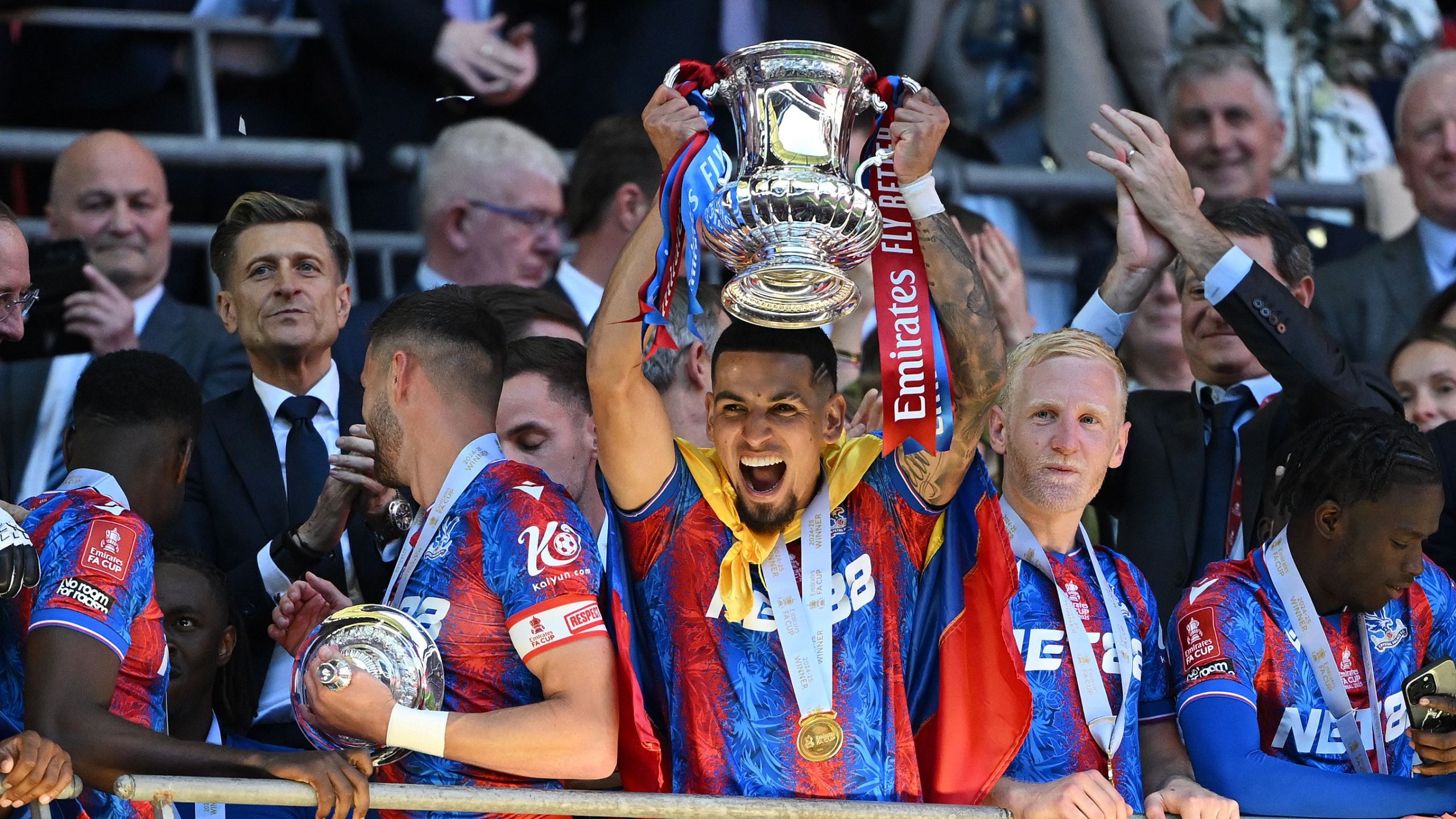# Crystal Palace UEFA Ruling Sees Eagles Demoted to Conference League
The final **Crystal Palace UEFA ruling** has sent shockwaves through South London, as the club has been officially demoted from the UEFA Europa League to the UEFA Europa Conference League for the upcoming season. The decision, handed down by European football’s governing body, stems from a breach of multi-club ownership (MCO) regulations, a complex and increasingly contentious issue in the modern game.
Palace’s historic FA Cup victory, which secured their spot in the Europa League, has been overshadowed by this administrative relegation. The source of the conflict is the club’s connection to Eagle Football Holdings, the investment group led by American businessman John Textor, which also holds a controlling stake in French club Olympique Lyonnais. With Lyon also qualifying for the Europa League, UEFA was forced to intervene to protect the integrity of its competitions. This landmark decision serves as a stark warning to the growing number of clubs involved in MCO structures.
## Dissecting the Crystal Palace UEFA Ruling and MCO Rules
At the heart of this issue are UEFA’s stringent regulations concerning multi-club ownership. These rules are designed to prevent any single individual or entity from having “control or decisive influence” over more than one club participating in the same UEFA club competition. The primary goal is to maintain sporting integrity, ensuring that no two clubs could potentially collude or face a conflict of interest, for example, if they were drawn in the same group or faced each other in a knockout tie.
The specific regulation states that if two clubs from the same MCO group qualify for the same competition, only one may be admitted. The decision on which club is admitted is based on a clear hierarchy:
1. The club that qualifies directly for the group stage of the competition.
2. The club that finished in the best domestic league position.
In this instance, both Crystal Palace (as FA Cup winners) and Olympique Lyonnais (via their Ligue 1 finish) qualified for the UEFA Europa League. However, UEFA’s tie-breaking criteria ultimately favoured the French side. Lyon’s higher league finish in their respective domestic competition was the deciding factor, forcing Palace to accept the lesser prize of a spot in the Conference League. The **Crystal Palace UEFA ruling** highlights the unforgiving nature of these regulations.
### The John Textor Connection: Eagle Football Holdings
John Textor’s Eagle Football Holdings has rapidly expanded its portfolio in recent years, creating a global network of clubs. The group holds significant stakes in Crystal Palace (Premier League, England), Olympique Lyonnais (Ligue 1, France), Botafogo (Série A, Brazil), and RWD Molenbeek (Challenger Pro League, Belgium).
While this model offers benefits in terms of shared scouting networks, player development pathways, and commercial opportunities, it also carries inherent risks, as demonstrated by the current situation. When both Palace and Lyon enjoyed successful seasons culminating in European qualification, it triggered the very scenario UEFA’s MCO rules were created to prevent. This **Crystal Palace UEFA ruling** is the most high-profile consequence of Textor’s ambitious project to date.
### The Financial and Sporting Impact on Palace
For Crystal Palace, the demotion is a significant blow. The financial disparity between the Europa League and the Conference League is substantial. Prize money, broadcast revenue, and gate receipts are all considerably lower in Europe’s third-tier competition. This will impact the club’s transfer budget and its ability to attract top-tier talent who were hoping for a stage in the more prestigious tournament.
From a sporting perspective, the glamour of facing European heavyweights in the Europa League is replaced by the relative unknown of the Conference League. While still a European adventure, it doesn’t carry the same weight or offer the same level of competition. The fallout from the **Crystal Palace UEFA ruling** will force the club’s hierarchy to reassess their financial projections and recruitment strategy for the upcoming season.
### Who Takes Palace’s Europa League Spot?
With Crystal Palace’s demotion, their Europa League spot is now reallocated. According to Premier League rules for European qualification, the vacant spot would typically pass down to the next-highest-ranked team in the league that has not already qualified for a UEFA competition. This means a club like Nottingham Forest, who may have narrowly missed out, could be the surprise beneficiaries, being promoted into the Europa League in Palace’s stead. This adds another layer of drama to the consequences of the **Crystal Palace UEFA ruling**. For the latest updates on this and more, check back here for more news.
The situation mirrors past UEFA interventions, such as the case involving AC Milan and Toulouse, and Manchester United and OGC Nice, where ownership links were scrutinised. However, this **Crystal Palace UEFA ruling** is a direct demotion, setting a firm precedent for how UEFA will handle these conflicts moving forward, as detailed in UEFA’s official regulations. It sends a clear message that the integrity of the competition will always be prioritised over the ambitions of any single ownership group. The era of multi-club ownership is firmly under the microscope, and this latest **Crystal Palace UEFA ruling** ensures it will remain a major talking point in European football.
Your global gateway to nonstop football coverage:
News Goal
Share this content:
